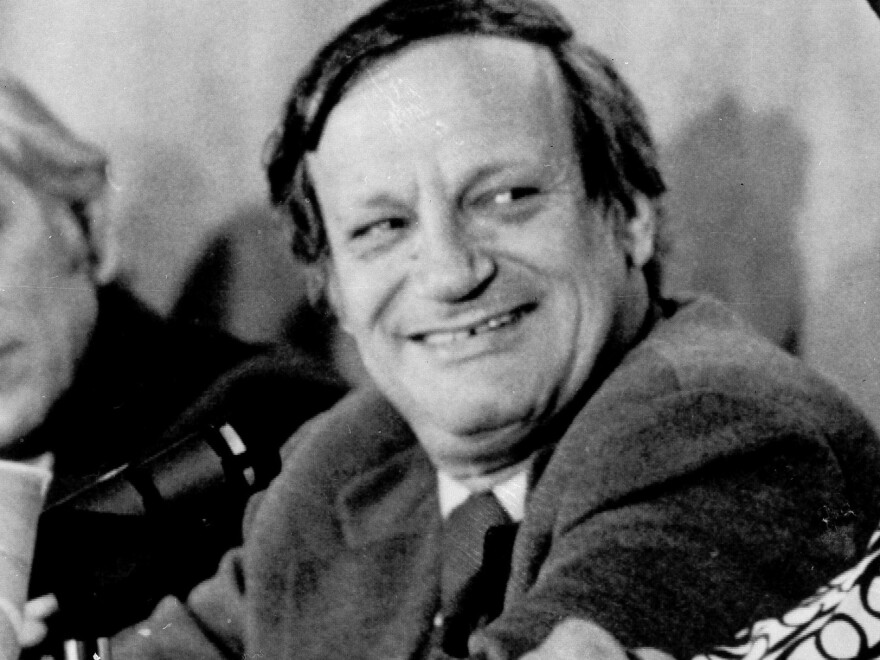I think Ben Bradlee and Frank Mankiewicz knew the news business enough to realize that if two old lions die within a couple days of each other, they'll wind up sharing space in the same recollection on a weekly show.
I knew Frank when he was president of NPR, and became a friend after he left. I met Ben Bradlee just a few times. But it seemed to me they shared a certain swagger of charm, wit and street smarts, even if those streets were in Georgetown.
Of all the photos of Ben Bradlee that appeared this week, I thought the best glimpse of character was in one taken when he left the federal courthouse in 1971 with Katharine Graham, publisher and co-owner of The Washington Post.
They had gone to court to fight for the right of the Post to run excerpts leaked to them from the so-called Pentagon Papers, a Defense Department study that documented how the Johnson administration had lied about the war in Vietnam — it's important not to use a more polite word — to Congress and the public.
In that photo on the courthouse steps, Bradlee and Graham are laughing.
I like to think Ben had just muttered something like, "Kay, we're gonna fight this if it takes all your money!"
But when the case was still in doubt, they looked like two people doing what they believed in — and enjoying it.

Years ago, Frank Mankiewicz got so angry over something I reported that he called me to his office and punted a typewriter. I hope you understand that we became ever better friends thereafter.
Ben and Frank weren't talking heads who opined about the principles of journalism. They loved the game: scoops, big stories, and rattled gilded cages.
They moved comfortably among the rich and powerful, but were profane in the best way: they respected effort, irreverence and wit more than power. They could be famously inattentive managers — when Frank left NPR, the network was deeply in debt — but inspired motivators.
Both men enjoyed their prime in a different time for the news business. NPR was once directly subsidized by the federal government; that percentage is very small today. Bradlee ran a one-paper monopoly in the nation's capital for a rich owner who was willing to lose money for a while. When The Washington Post was sold last year, it was for $250 million dollars — just what Albert Pujols is paid to play baseball.
I'm not sure that Ben Bradlee or Frank Mankiewicz ever had a business plan to create national institutions. But they did what they loved and made it stand for something.
Copyright 2023 NPR. To see more, visit https://www.npr.org.




